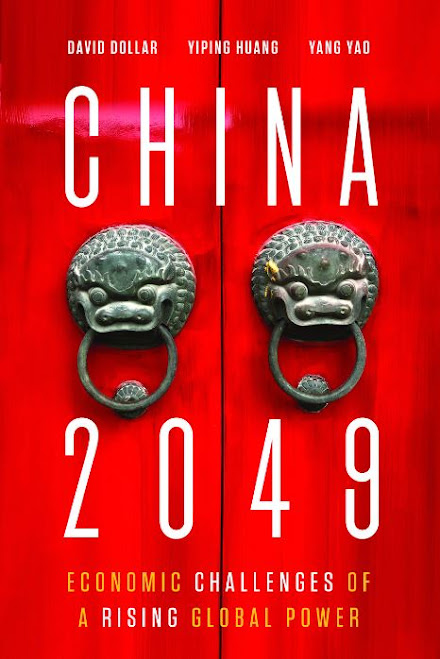"China 2049: Economic Challenges of a Rising Global Power" All all key take-away and insights. by _ Nayzaw Tun
"China 2049: Economic Challenges of a Rising Global Power" is a book that delves into the economic trajectory of China, as it aims to become a global superpower by 2049, the centennial of the founding of the People's Republic of China. The authors identify key challenges and propose strategies for the country's continued growth and development. Here are the main takeaways and insights from the book:
Historical context: The book provides an overview of China's historical economic development, starting with the economic reforms initiated by Deng Xiaoping in the late 1970s. China has since experienced rapid growth, lifting millions out of poverty, and becoming the world's second-largest economy.
The "middle-income trap": China is currently facing the challenge of escaping the so-called "middle-income trap," which occurs when a country achieves a certain level of income but struggles to progress further due to various structural and institutional issues. China must address these challenges to avoid stagnation and continue its upward trajectory.
Economic rebalancing: China needs to shift its growth model from an investment and export-driven approach to one focused on domestic consumption, services, and innovation. This will require significant economic reforms, including liberalizing markets, encouraging private enterprises, and enhancing social safety nets.
Demographic challenges: China's aging population and shrinking workforce pose significant obstacles to its economic growth. The country must address these issues by reforming its pension system, encouraging higher labor force participation, and promoting immigration.
Environmental sustainability: As China continues to grow, it must also focus on environmental sustainability. The authors propose that the country should prioritize green technologies, reduce pollution, and invest in renewable energy to ensure long-term ecological and economic health.
Innovation and technological advancement: To maintain its competitive edge, China must invest in research and development, promote entrepreneurship, and establish a robust intellectual property rights system. This will require cooperation between the government, the private sector, and educational institutions.
Governance and institutional reforms: The authors argue that China needs to improve its governance and institutional framework, which includes enhancing the rule of law, combating corruption, and increasing transparency. These improvements will foster a more conducive environment for businesses and promote continued growth.
Global integration: China's future as a global power depends on its ability to integrate with the international community. This means participating in global governance, adhering to international rules and norms, and engaging in constructive diplomacy to build trust and cooperation with other nations.
In summary, "China 2049" highlights the economic challenges China faces as it aims to become a global superpower by its centennial anniversary. The book provides valuable insights into the necessary reforms and strategies required for China to achieve sustainable growth, overcome potential pitfalls, and assert its place as a dominant player in the international arena.
By _ Nayzaw Tun

Comments
Post a Comment